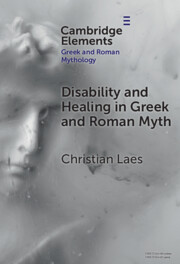‘Us and Them’ is a community history project and artistic collaboration exploring physical and intellectual disability and mental illness, in the past and present. It is part of a broader initiative to open out wider conversations about the history of psychiatric care in Epsom (Surrey, UK) and to explore ways in which medical histories, creative engagement strategies and oral history praxis can illuminate the instability of contemporary understandings of ‘healthy minds’ and ‘normative bodies’. This article charts our recent reuse of asylum photography and the restaging of wet-plate collodion portrait making, opening out key ethical questions about our complicity as consumers of historical sources, the role of re-enactment and empathy, and the place of the haptic and the ludic in exposing the porous and precarious boundaries between ableism and disability. Exploring our own vulnerabilities and solidarities in co-producing a public history project with our disabled artist collaborators, it offers insight into our evolving ‘micro ethics’, foregrounds lived experience perspectives, and offers some initial thoughts on ways to rethink critically some core tenets of oral history methodology.

